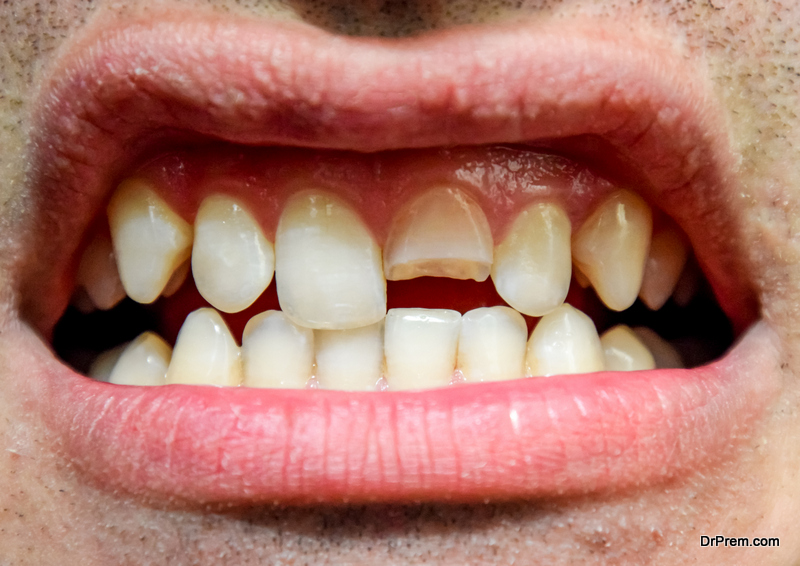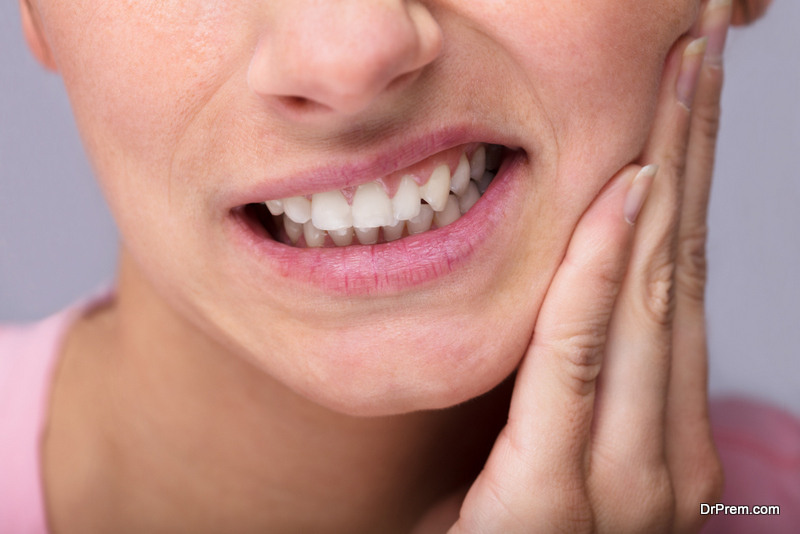Do you experience excruciating pain when drinking or eating cold and hot foods? Does a cold breeze outside send shivers down your spine for a different reason? These are all signs of sensitive teeth. But what causes this sort of pain and what can you do to treat it? Keep reading to find out.
Why Are My Teeth So Sensitive?
Before we discuss the causes of sensitive teeth, let’s first discuss why sensitivity happens. The protective layer of your tooth is called the enamel. This protects the tooth’s underlying layer, which is made of softer enamel known as dentin, which is connected to your nerves. Your gums protect the root of your tooth. Receding gums and worn out enamel expose the dentin, which causes sensitivity. So what causes this breakdown of dentin and receding gums? Let’s take a look.
1. Cracked Teeth

Anytime you experience damage to your tooth, it puts you at risk for pain, discomfort, and further complications. While these issues can be fixed with mini dental implants and other dental procedures, in the meantime, they can be quite painful. A cracked tooth exposes the root of your tooth to all the substances you put in your mouth, including food, drink, mouthwash, and medications. The root is filled with nerves, adding to the sensitivity and pain you experience. The cracks in these teeth can also fill with plaque and bacteria, causing inflammation. This condition can eventually develop into an abscess.
2. Brushing Too Hard
Brushing too hard is one of the most common causes of receding gums. While brushing is important, being too abrasive or brushing too hard and too often can damage gums permanently. Gingivitis is another common condition resulting in inflamed gum tissue, which can eventually expose the root. Brushing too hard can even wear away at your tooth’s enamel. Try using a toothbrush with soft bristles or an electric one. Electric toothbrushes take the control out of your hands (literally), massaging your teeth and gums with the perfect amount of pressure. Just avoid using too much mouthwash. Although fluoride wash can help protect teeth, some contain high-levels of acid so be sure to check the label.
3. Certain Foods

Acidic foods can not only aggravate sensitive teeth but may even cause the problem. Foods like fruit juices, coffee, red wine, candy, and some yogurts can slowly wear away at your tooth’s enamel. Once this happens, continued use of these foods will only worsen your condition. Avoid acidic foods whenever possible to prevent enamel breakdown and treat pain.
4. Grinding or Clenching Teeth
Grinding of the teeth, also known as bruxism, is fairly common. And most people don’t even realize they’re doing it. Bruxism, for some people, is a result of high anxiety or nerves. People subconsciously grind or clench their teeth when they find themselves in stressful situations. While occasional grinding isn’t always harmful, long-term clenching can wear away at your tooth’s enamel. This usually happens at night, when grinders aren’t aware of the habit and do it for several hours. Signs you’re doing this include waking with a headache, a sore jaw, or if your partner tells you they hear grinding during the night.
Tooth sensitivity is a common problem but not one with a single cause. There are a variety of reasons why your teeth and gums may be sensitive to certain foods and drink. Take a look at this list and see which items apply to you. Then, speak to your dentist about treatment options.
Article Submitted By Community Writer




